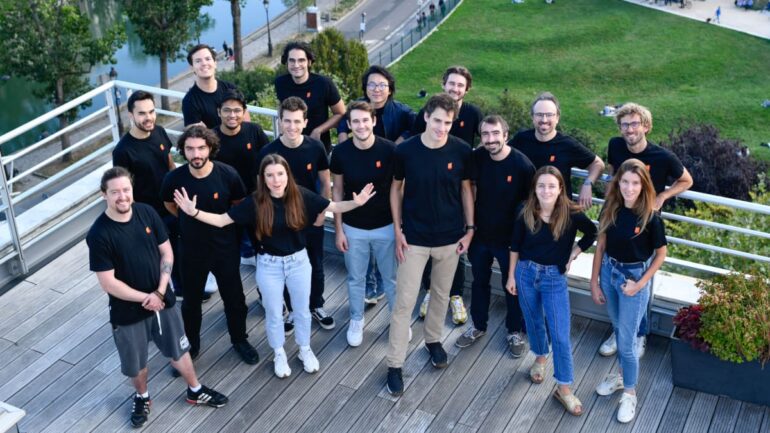TL;DR:
- Mistral AI, a Paris-based AI startup, closes the Series A funding round with €385 million ($415 million).
- The funding round is led by Andreessen Horowitz (a16z) and includes notable investors like Salesforce and BNP Paribas.
- Mistral AI previously raised $112 million in a seed round.
- The company released Mistral 7B, a large language model, for free download under an open-source license.
- The EU’s AI Act discussions involve Mistral AI’s lobbying for exemptions for foundational models.
- Mistral AI introduces a developer platform, offering access to models via APIs, including the Mixtral 8x7B model.
Main AI News:
Mistral AI, the Paris-based contender to OpenAI, has successfully concluded its highly-anticipated Series A funding round, amassing an impressive €385 million (equivalent to $415 million at current exchange rates). This achievement catapults the company’s valuation to a staggering $2 billion, according to reports by Bloomberg. Concurrently, Mistral AI has unveiled its commercial platform, marking a significant stride in the realm of artificial intelligence.
For those following Mistral AI’s trajectory, it’s worth noting that less than six months ago, the company secured an impressive $112 million in a seed funding round. This capital infusion aimed to establish a European counterpart to OpenAI and was orchestrated by a team comprising former Google DeepMind and Meta luminaries. Mistral AI’s unique focus centers on pioneering foundational models rooted in open technology principles.
The latest funding round boasts a prestigious leader in the form of Andreessen Horowitz (a16z), further reinforced by Lightspeed Venture Partners, who continue to exhibit their faith in the AI company. This funding extravaganza also sees a multitude of renowned investors join the ranks, including Salesforce, BNP Paribas, CMA-CGM, General Catalyst, Elad Gil, and Conviction.
Mistral AI’s co-founder and CEO, Arthur Mensch, affirmed the company’s mission, stating, “Since the creation of Mistral AI in May, we have been pursuing a clear trajectory: that of creating a European champion with a global vocation in generative artificial intelligence, based on an open, responsible and decentralized approach to technology.”
In a noteworthy development from September, Mistral AI introduced its inaugural model, named Mistral 7B. Unlike direct competitors to GPT-4 or Claude 2, Mistral 7B was trained on a “small” dataset, amounting to approximately 7 billion tokens as parameters. The distinctive aspect here is that Mistral AI opted to release the model as a free download, empowering developers to deploy it on their devices and servers. This release operates under the Apache 2.0 license, characterized by its openness and lack of restrictions on usage, aside from the requirement of attribution. It’s worth mentioning that the model’s development transpired behind closed doors, utilizing a proprietary and undisclosed dataset.
Mistral AI also assumed a pivotal role in influencing discussions surrounding the EU’s AI Act. The French startup diligently lobbied for total exemption for foundational models, advocating that regulation should exclusively encompass use cases and companies directly serving end users. Just recently, EU lawmakers reached a political consensus. Foundational model-oriented companies will be subjected to certain transparency obligations, mandating the sharing of technical documentation and summaries pertaining to dataset contents.
Despite its commitment to offering foundational models for free, Mistral AI is not relinquishing its pursuit of profitability. In light of this, the company has launched its developer platform in beta. This platform allows other enterprises to gain access to Mistral AI’s models via APIs, with an array of options, including the Mistral 7B model (“Mistral-tiny”) and the newly-introduced Mixtral 8x7B model (“Mistral-small”). The latter employs a sophisticated “router network” to process input tokens and select the most pertinent set of parameters for generating responses. Notably, Mixtral 8x7B boasts an impressive 45B total parameters while operating at the speed and cost efficiency of a 12B model. This model is also offered under the Apache 2.0 license, following the company’s commitment to openness.
In addition to these offerings, Mistral’s developer platform features the Mistral-medium model, which is recognized for its superior performance. Unlike its counterparts, Mistral-medium is exclusively accessible through the paid API platform, with no downloadable version available. This strategic approach underscores Mistral AI’s commitment to innovation and sustainable growth in the dynamic field of artificial intelligence.
Conclusion:
Mistral AI’s successful Series A funding and impressive valuation demonstrate the growing interest and investment in AI technology. The company’s commitment to open-source models and its role in shaping AI regulation position it as a significant player in the market. The introduction of the developer platform expands its revenue streams, further solidifying its presence in the competitive AI landscape.

